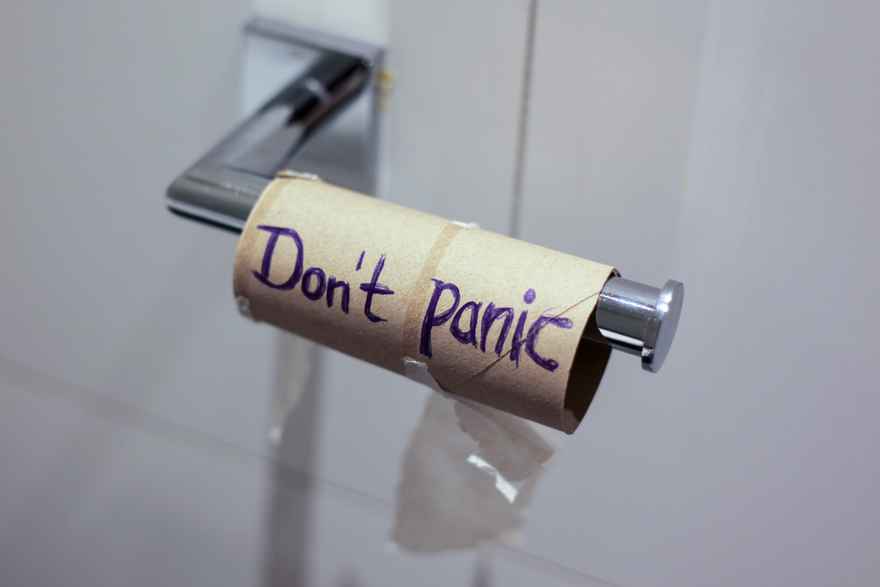Understanding Herpes Symptoms: Common, Misunderstood, and Equivocal Answers

This week we welcomed some new faces to the group, and I absolutely loved supporting each of you. I know that it can be scary and maybe even paralyzing to join a support group for herpes, but by joining, you're beginning to heal your emotional wounds from your herpes diagnosis. This week, many people talked about what it's like to get diagnosed and the dark thoughts that go along with it. It can be such a scary time, but taking the first steps to educate yourself and join the Secret Society will get you on your healing journey. This week, we talked about herpes symptoms, what herpes looks like, what it doesn't look like, and even how you can have similar symptoms, but it might not be herpes at all. It's possible to have some symptoms but continue to test negative. This blog post covers what that looks like and how you should proceed if this is your situation.
Recognizing Common Herpes Symptoms
Herpes, caused by the herpes simplex virus (HSV), typically presents with a range of symptoms. The most common include:
- Blisters and sores: These painful, fluid-filled blisters often appear around the mouth (oral herpes) or genital area (genital herpes).
- Itching and tingling: Before blisters appear, you might feel a tingling or itching sensation in the affected area.
- Painful urination: This is often associated with genital herpes.
- Flu-like symptoms: Fever, body aches, and swollen lymph nodes can accompany an initial outbreak.
While oral and genital herpes have similar symptoms, the main difference lies in their locations. Oral herpes affects the mouth area, while genital herpes impacts the genital region.
Uncommon Symptoms and Their Misinterpretations
Aside from the typical symptoms, there are some less-known signs of herpes that people should be aware of. These include:
- Boils: Sometimes mistaken for herpes sores, boils are deep skin infections that cause painful, pus-filled lumps.
- Shaving bumps: Ingrown hairs from shaving can mimic herpes blisters.
- Tears from penetration: Minor tears in the skin from sexual activity can be confused with herpes sores.
- Bug bites: Insect bites can resemble herpes blisters.
- Spider bites: Like bug bites, these can also be mistaken for herpes sores.
Recognizing these uncommon symptoms is crucial to avoid misdiagnosis and unnecessary anxiety.
Common Misconceptions and Mistaken Symptoms
Misunderstanding herpes symptoms is common. Some misconceptions include:
- All blisters are herpes: Not every blister or sore is caused by herpes.
- Herpes always shows symptoms: Many people with herpes are asymptomatic.
- Herpes symptoms are constant: Symptoms can come and go, making it hard to diagnose without testing.
Symptoms of herpes can be mistaken for other conditions like:
- Skin conditions: Such as eczema or psoriasis.
- Infections: Like bacterial or fungal infections.
It's important to correctly identify herpes symptoms to avoid unnecessary stress and to seek proper treatment. Our minds can play tricks on us, convincing us that we have herpes when we don't. You might experience tingling, itchy areas, and even blisters, only to have your test come back negative. This is why professional testing is essential.
Navigating Equivocal Test Results
Receiving an equivocal result on a herpes test can be confusing and stressful. An equivocal result means you have mixed test results, such as:
- A positive test followed by a negative test.
- Negative tests despite experiencing herpes-like symptoms.
Equivocal results are not uncommon in herpes testing due to various factors, such as timing of the test and the sensitivity of the testing method.
If you receive an equivocal result, here are some steps to take:
- Seek further testing: A more accurate test, such as the Western Blot test, can provide clarity. The Western Blot test is considered the gold standard for herpes testing, especially in cases of equivocal results. It's not something to seek if you've received a positive test result and hope to be negative, but it's valuable if you have symptoms and keep getting negative test results.
- Consult a healthcare professional: Discuss your symptoms and test results with a trusted doctor who can guide you on the next steps.
- Educate yourself: Understanding the nuances of herpes testing can help alleviate anxiety.
Finding Accurate Diagnosis and Support
Accurate diagnosis is crucial for managing herpes effectively. Healthcare professionals play a vital role in providing clarity and support. If you're experiencing symptoms or have received equivocal test results, don't hesitate to seek help. Joining a support group can also provide emotional support and practical advice from others who understand your journey.
Understanding herpes symptoms, addressing misconceptions, and navigating equivocal test results are essential steps in managing your health. Remember that professional testing and support are crucial in this process. If you're facing similar challenges, take proactive steps to educate yourself and seek the necessary help.
By joining our support group, you'll find a community that understands and supports you. Together, we can navigate this journey and find strength in shared experiences. If you haven't joined yet, consider becoming a part of our supportive community here.


0 comments
Leave a comment
Please log in or register to post a comment